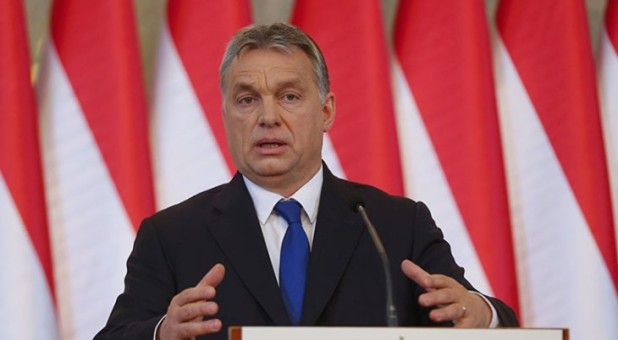The New Observer
February 26, 2016
The news that Hungary will vote on whether to let the European Union (EU) forcibly resettle thousands of nonwhite invader “refugees” in that country poses the single most serious threat to the future existence of that organization yet.
Hungarian Prime Minister Viktor Orban made the announcement about the referendum after it became clear that there was a massive groundswell of opposition in Hungary of earlier reports that the government had agreed to the EU “resettlement plan.”
In terms of that “plan,” the millions of invaders in Germany are to be redistributed to all EU members according to their capacity and economic ability, and tens of thousands had been allocated to Hungary.
Orban, who is already famous for not being shy to adopt any policy which can bring him popular support in Hungary, said at a news conference that the question of the referendum had already been submitted for verification to the country’s National Electoral Commission.
The core of the issue, Orban said, is that a decision on the “resettlement quota” plan “cannot be taken away from the [Hungarian] Parliament, as no one else can make such a decision.”
“Hungary is under enormous pressure,” he said, “[over] whether or not the EU will succeed in pushing a new EU asylum and migrant system down the throats of the central European countries, including ours. Such a system would authorize [the EU] to distribute migrants among the other EU countries, including those which have not taken in migrants, do not want to, are opposed to this, and do not want any part in it.”
“Nobody has asked the European people so far whether they support, accept, or reject the mandatory migrant quotas,” he said at a news conference.
“The government is responding to public sentiment now: we Hungarians think introducing resettlement quotas for migrants without the backing of the people equals an abuse of power.”
Orban said he was aware of potential wider ramifications of such a referendum, especially if Hungarians say “No” to quotas.
“We had to think about the potential impact on European politics of such a proposal, but that was a secondary consideration,” he said.
“To us this is a fundamental, unavoidable, essential question of Hungarian politics: can anyone else decide for Hungarians who we Hungarians should or should not live with?”
The Hungarian parliament—dominated by the government which holds 131 seats in the 199-seat body—is well-known to be completely opposed to the quota, and has specifically authorized an ongoing legal action against the EU over the matter.
It is clear, therefore, that Orban has decided to call out a referendum because he knows he is assured of winning it—and by so doing, will strengthen his own party’s popularity at the same time.
There is therefore, little doubt about the outcome of the referendum—but it will be after the “no” vote victory, that the real sparks will fly.
A refusal by Hungary to accept the “redistribution plan” will mean that the Visegrad group of nations will have thrown down the gauntlet to Brussels and Angela Merkel in particular.
Threats by the EU to withhold funding or impose sanctions against Member States will result in unheard of internal political pressure, and may have fatal consequences for the EU’s continued existence.
 Daily Stormer The Most Censored Publication in History
Daily Stormer The Most Censored Publication in History



